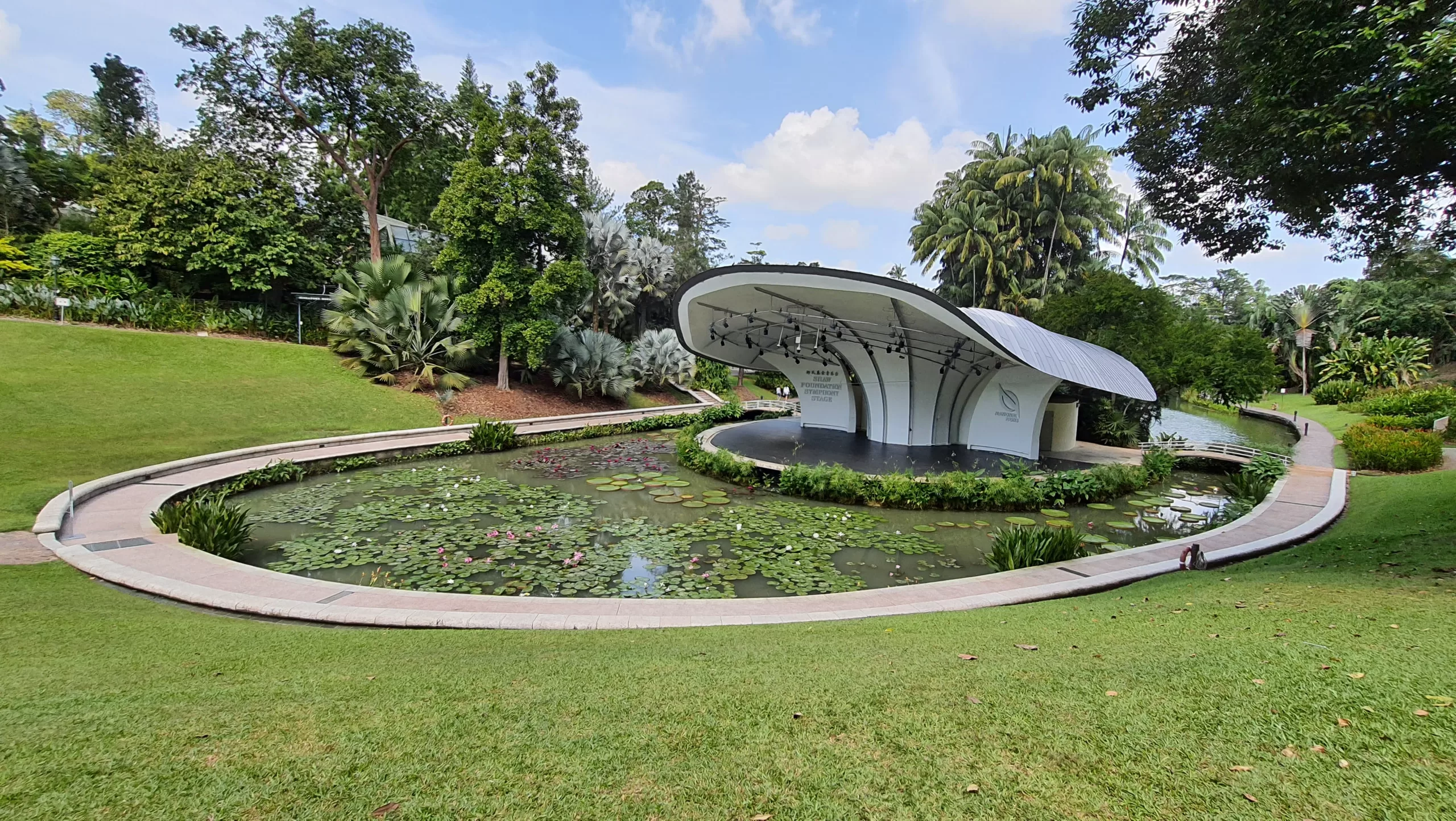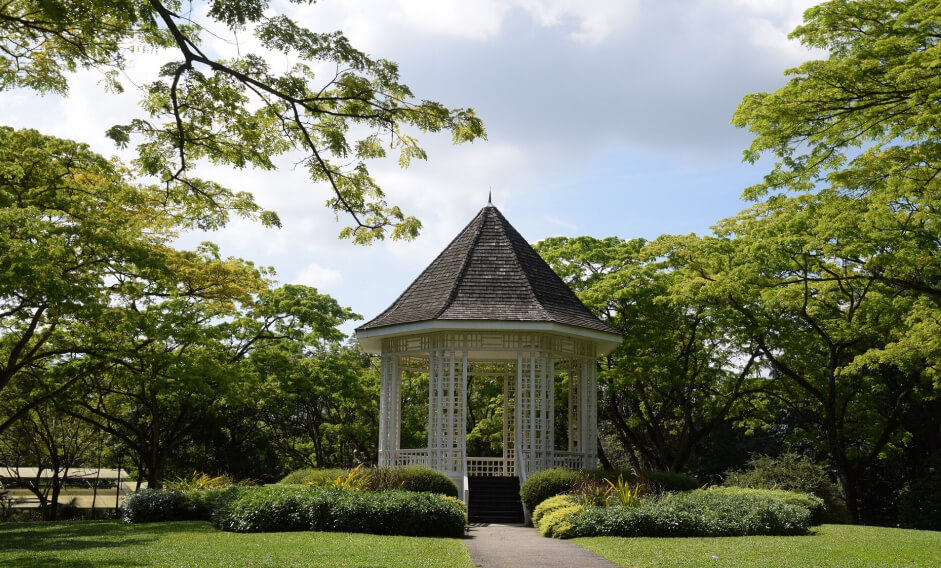Book an Appointment for Horticulture Waste Disposal with Our Sales Specialists
Greening your space, sustaining our future.
What is Horticulture Waste Disposal?
Horticulture waste disposal encompasses the processes involved in managing and recycling green waste generated from gardening, landscaping, and agricultural activities. This includes leaves, grass clippings, branches, and other plant materials. Proper disposal and recycling of horticulture waste are crucial in maintaining environmental balance, reducing landfill use, and supporting sustainable practices. By turning green waste into valuable compost or mulch, we contribute to soil health and reduce the need for chemical fertilisers, enhancing the greenery of Singapore in a sustainable manner.

Why Choose BNL for Horticulture Waste Disposal in Singapore?
BNL stands out as a trusted provider for horticulture waste disposal in Singapore, offering efficient, environmentally responsible solutions tailored to the unique needs of our community. With a focus on sustainability and resource recovery, our services are designed to support the greening efforts of Singapore, from individual gardens to large-scale agricultural projects.
Efficient Green Waste Collection and Removal Services
Our green waste collection and removal services are streamlined to offer convenience and efficiency for our clients. With regular collection schedules and customised solutions for large-scale projects, we ensure that horticulture waste is managed effectively. Our commitment to timely and reliable service minimises the hassle for gardeners, landscapers, and agriculturalists, allowing them to focus on their green initiatives while we take care of the waste.
Partnerships with Local Nurseries and Landscapers
At BNL, we pride ourselves on our strong partnerships with local nurseries and landscapers across Singapore. These collaborations allow us to tailor our horticulture waste disposal services to the specific needs of the industry, ensuring that green waste is recycled or repurposed in the most beneficial manner. Through these partnerships, we contribute to the sustainability of Singapore’s horticulture industry and support the growth of healthy, vibrant green spaces.
Comprehensive Horticulture Waste Recycling Solutions
Our horticulture waste recycling solutions are comprehensive, turning green waste into valuable resources such as compost and mulch. These recycling efforts not only reduce the amount of waste sent to landfills but also support soil health and plant growth throughout Singapore. By providing a second life to horticulture waste, we help maintain the natural beauty and biodiversity of our environment, reinforcing our commitment to a greener future.
Horticulture Waste Disposal Methods & Processes
Our approach to horticulture waste disposal encompasses a variety of methods and processes, each designed to address the specific characteristics of green waste. From composting to advanced biological treatments, our goal is to maximise resource recovery and minimise environmental impact in Singapore. Through innovative landfill diversion strategies and integrated waste management approaches, we ensure that every piece of horticulture waste is treated in the most sustainable manner possible.
Composting Techniques for Green Waste
Composting is a cornerstone of our horticulture waste recycling efforts, transforming green waste into nutrient-rich compost. This natural process not only enriches the soil but also reduces the need for chemical fertilisers, promoting healthier plant growth. Our advanced composting techniques ensure that organic waste is broken down efficiently, resulting in high-quality compost that benefits gardens and green spaces across Singapore.
Biological Treatment Options
In addition to composting, we utilise biological treatment options that further enhance the decomposition of horticulture waste. These methods, including vermiculture and anaerobic digestion, convert green waste into valuable by-products such as biofertilisers and biogas. These processes are carefully managed to ensure environmental safety and maximise the benefits to our ecosystems.
Landfill Diversion Strategies
Our landfill diversion strategies are focused on reducing the volume of horticulture waste sent to landfills. By prioritising recycling and resource recovery, we not only conserve landfill space but also contribute to the reduction of greenhouse gas emissions. Our strategies include promoting community composting programmes and expanding the use of recycled green waste products in landscaping and agricultural applications.
Integrated Waste Management Approaches
We adopt integrated waste management approaches that consider the entire lifecycle of horticulture waste. From collection and transportation to processing and final use, our methods are designed to optimize efficiency and sustainability. This holistic view ensures that we can identify the best disposal or recycling options for each type of green waste, supporting a circular economy.
Regulatory Framework for Waste Disposal
Our horticulture waste disposal services operate within a strict regulatory framework set forth by Singaporean authorities. These regulations ensure that waste disposal practices are safe, environmentally friendly, and in line with national sustainability goals. We work closely with regulatory bodies to comply with all guidelines and standards, ensuring that our disposal and recycling efforts contribute positively to the well-being of our community and the environment.
Other Industrial & Bulky Waste Disposal Services
Beyond horticulture waste, BNL offers a broad spectrum of disposal services for various industrial and bulky waste types, catering to diverse waste management needs. Our services include soil removal services, construction waste disposal, and furniture removal, each handled with our hallmark attention to environmental sustainability and regulatory compliance in Singapore.
Book an Appointment for Soil Waste Removal and Disposal Services with Our Sales Specialists
Join us in cultivating pristine and inviting environments for our society.
FAQs about Horticulture Waste Disposal in Singapore
How does composting contribute to horticulture waste management?
Composting plays a pivotal role in horticulture waste management by converting organic waste into nutrient-rich compost, which can be used to improve soil health and fertility. This process not only reduces the volume of waste sent to landfills but also recycles it into a valuable resource for gardening and landscaping, promoting a circular economy.
What are the environmental impacts of improper horticulture waste disposal?
Improper disposal of horticulture waste can lead to increased landfill use, methane emissions, and the potential contamination of water sources. It disrupts natural habitats and contributes to the overall environmental footprint of waste management. Correct disposal and recycling practices are essential to mitigate these impacts.
How does horticulture waste disposal differ from other types of organic waste management?
Horticulture waste disposal often involves specific treatments like composting and mulching, tailored to plant-based waste. Unlike other organic wastes that might include food scraps or animal by-products, horticulture waste requires different processing to maximise resource recovery and ensure the end product is suitable for use in soil enhancement and landscaping.
Are there best practices for handling hazardous materials in horticulture waste in Singapore?
Yes, best practices for handling hazardous materials in horticulture waste include identifying and separating hazardous chemicals or treated wood before disposal. Singapore’s environmental regulations mandate the proper handling and disposal of such materials to prevent soil contamination and protect public health. It’s crucial to consult with waste disposal experts like BNL to ensure compliance and safety.
How does climate change affect horticulture waste disposal practices in Singapore?
Climate change challenges horticulture waste disposal practices with increased waste volumes due to more frequent and intense gardening and landscaping activities. It necessitates more efficient waste management strategies to cope with the higher demand for disposal and recycling, as well as adaptation measures to ensure sustainability and resilience in waste management practices amidst changing environmental conditions.

Cum sociis natoque
penatibus et magnis dis
Cum sociis natoque penatibus et magnis dis parturient montes, nascetur ridiculus mus. Aenean commodo ligula eget dolor. Aenean massa. Cum sociis natoque penatibus et magnis dis parturient montes, nascetur ridiculus mus. Donec quam felis, ultricies nec, pellentesque eu, pretium quis, sem.
get in touch
with us
Call us now
Address
-
17 Changi South
Street 1
S486781
Email address
Send us a message
Book an Appointment for Soil Waste Removal and Disposal Services with Our Sales Specialists
Join us in cultivating pristine and inviting environments for our society.
